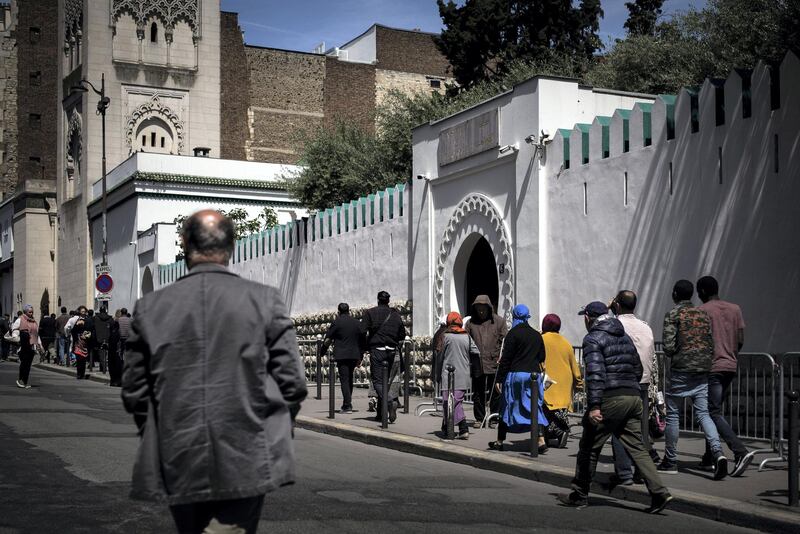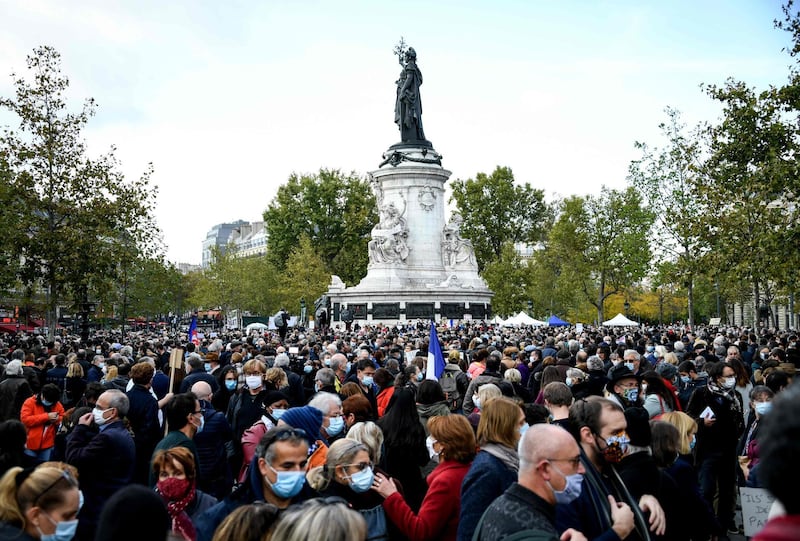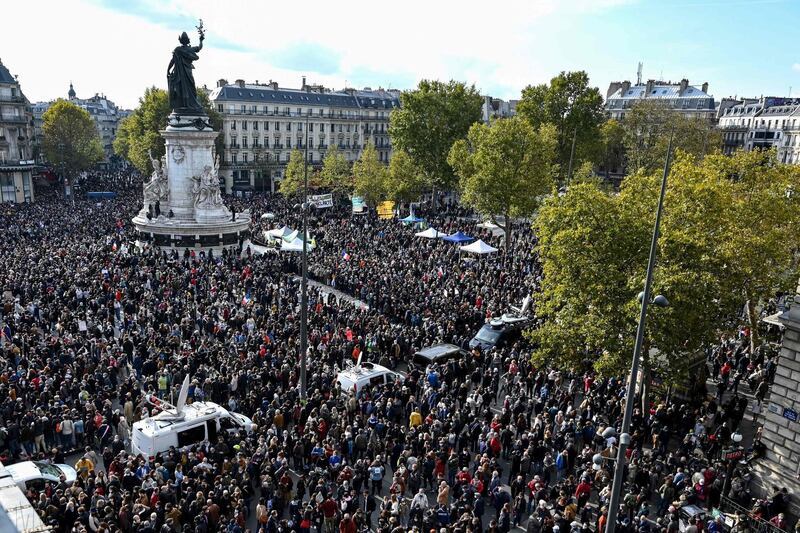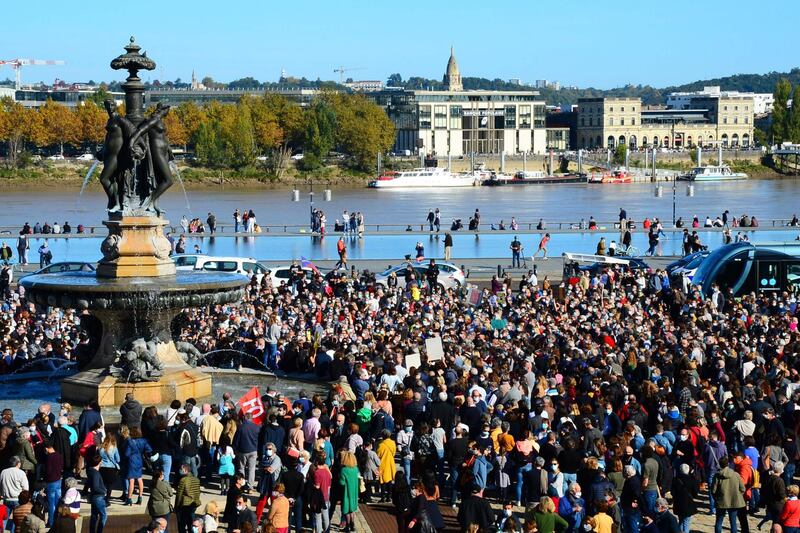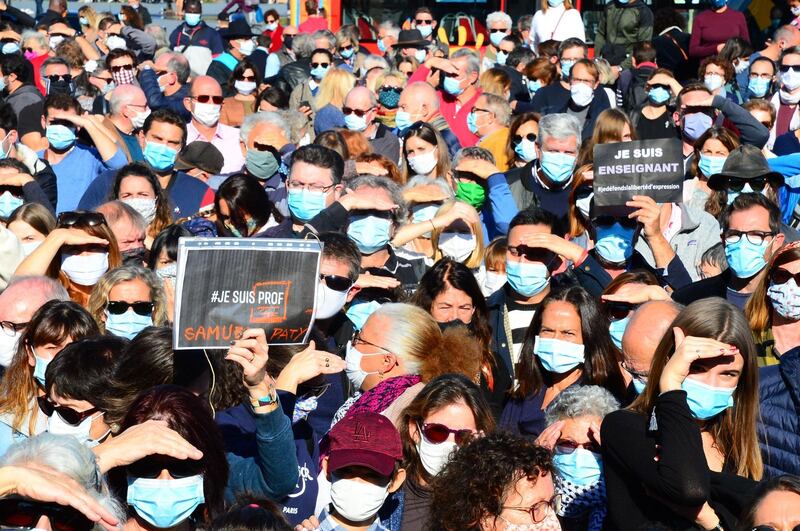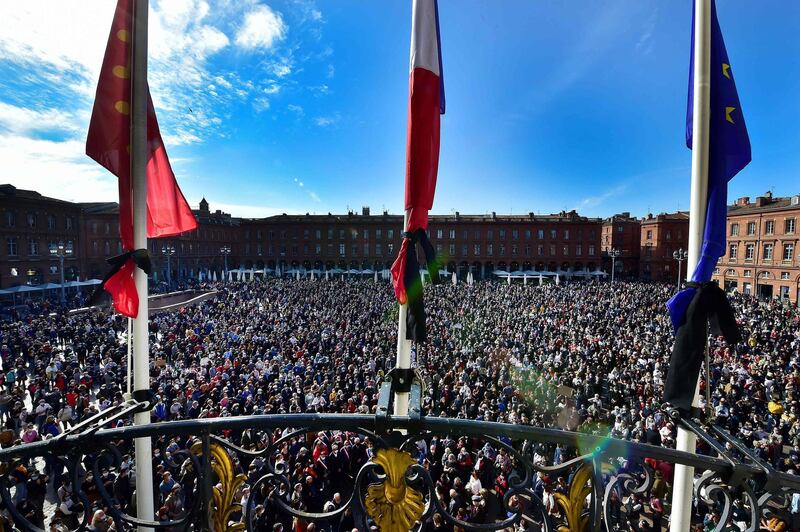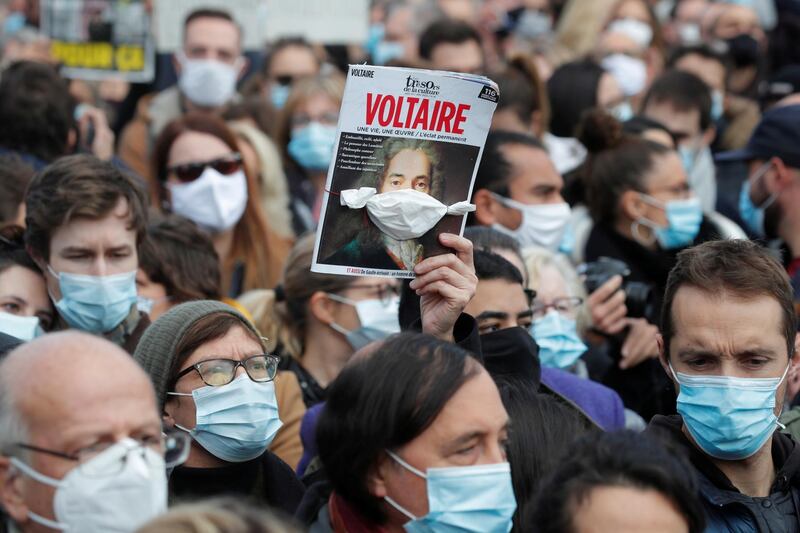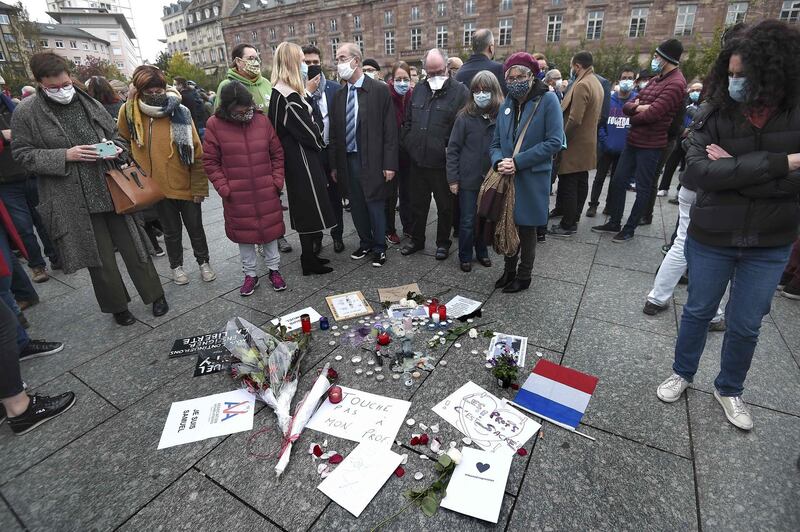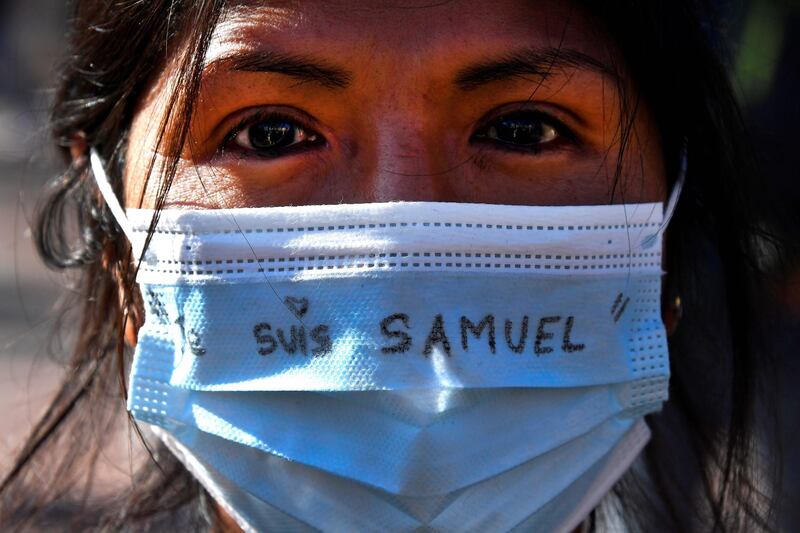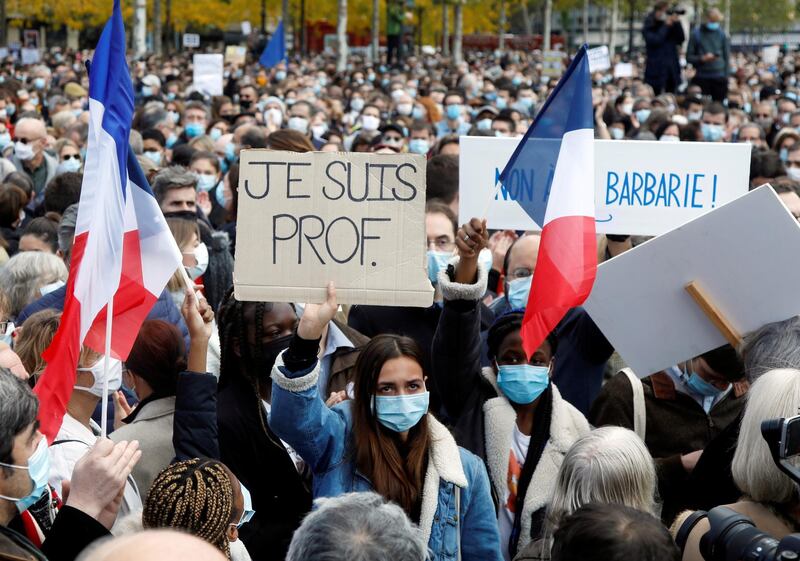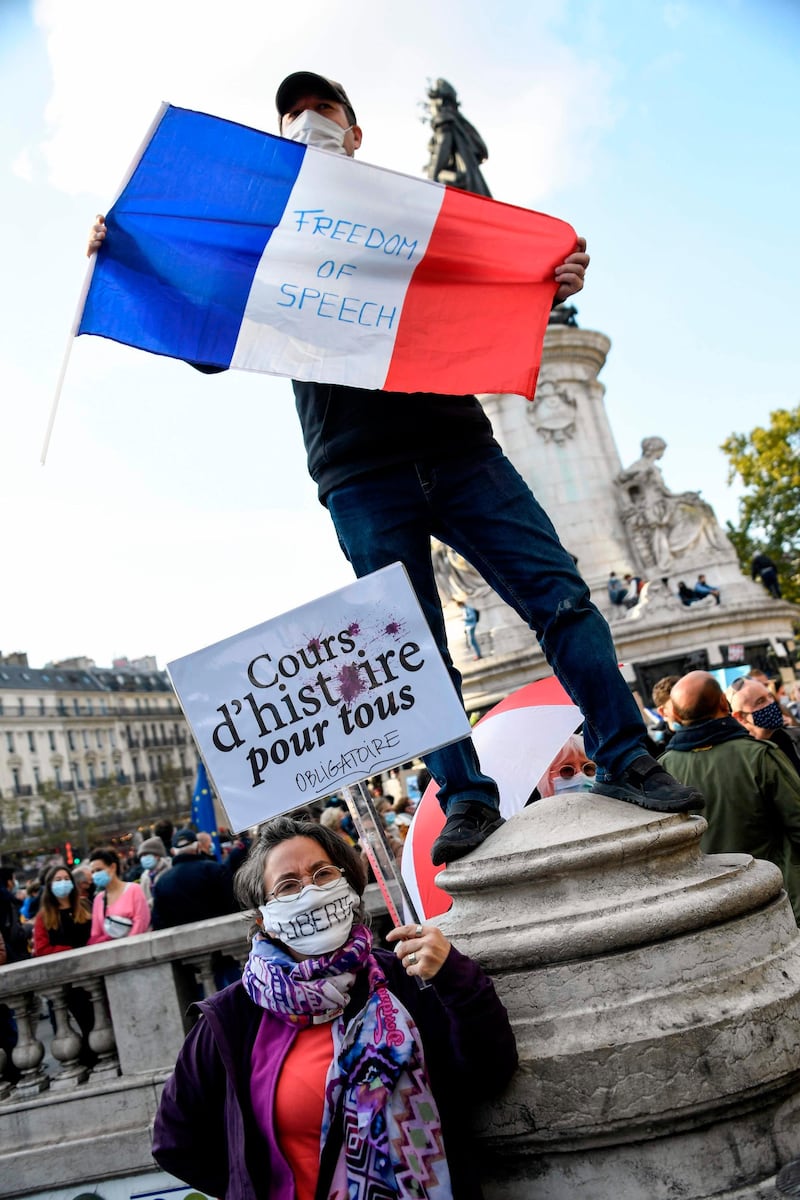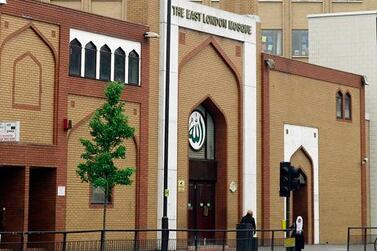France's Muslim federations agreed on a "charter of principles" requested by Emmanuel Macron on Monday as the president presses forward with reforms to eradicate sectarianism and extremism.
The nine federations making up the French Council of Muslim Faith agreed at a meeting with Mr Macron on the text of a "charter of principles" which should serve as a reference for a new National Council of Imams.
"This is a clear, decisive and precise commitment in favour of the republic," Mr Macron said. He hailed "a truly foundational text for relations between the state and Islam in France".
The document stated that places of worship could not be used to deliver political or ideological messages or as platforms for foreign governments.
“No religious conviction can be invoked to evade the obligations of citizens. We reaffirm from the outset that neither our religious convictions nor any other reason can supplant the principles which found the law and the Constitution of the Republic,” the accord said.
The Council was urged in November by Mr Macron to set up the charter following the beheading of schoolteacher Samuel Paty, who had stoked anger by showing cartoons of the Prophet Mohammed to students.
It rejects "instrumentalising" Islam for "political ends” and asserts equality between men and women, while denouncing practices such as female genital mutilation, forced marriage and virginity certificates for brides.
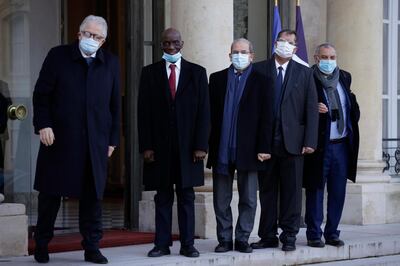
It also condemns racism and anti-Semitism, and warns that mosques "are not created for the spreading of nationalist speech defending foreign regimes". The charter will also mean greater scrutiny on foreign donations of more than €10,000 ($12,070).
"This charter reaffirms the compatibility of the Muslim faith with the principles of the republic, including secularism, and the commitment of French Muslims to their complete citizenship," CFCM president Mohammed Moussaoui said.
He said the charter would be shared with imams and local leaders "with a view to the widest possible consultation and membership".
After meeting with Mr Macron at the Elysee Palace on Monday alongside other figures from the CFCM, Mr Moussaoui said the charter was just the "first step".
Its formal adoption by the nine federations of the CFCM paves the way to a vast restructuring of Islam in France, particularly the creation of a National Council of Imams which will be responsible for "labelling" imams practising in the country.
Several members of the CFCM had criticised the concept of a charter declaring Islam compatible with French law and values – the first step towards setting up the proposed CNI.
But Mr Moussaoui and his two vice presidents hammered out a deal in talks with Interior Minister Gerald Darmanin.
"There was an awareness that these disagreements were preventing the Muslim community from asserting itself," Mr Moussaoui said. "This awareness allowed us to overcome our differences."
"I commend the work undertaken by the French Muslim community which clearly condemns political Islam," Mr Darmanin said.
The charter is part of Mr Macron's hopes reduces influences that he says encroach on France's strict secularism.
Mr Macron has embarked on a crackdown against mosques and associations accused of extremism. He also plans to remove about 300 imams in France sent from Turkey, Morocco and Algeria.
The French government is pushing through legislation to combat "pernicious" Islamist radicalism, which would tighten rules on issues ranging from religious-based education to polygamy.
But the wide-ranging moves, along with the president's defence of controversial Mohamed cartoons published by satirical magazine Charlie Hebdo, have angered many in Muslims who believe Mr Macron is unfairly targeting an entire religion.
The president has rejected the claims, saying the law aims to protect the country's estimated four to five million Muslims, the largest number in any one country in Europe.
